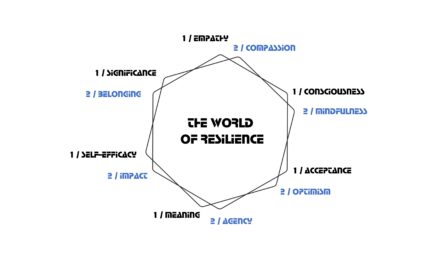First of all, a note in advance: I work as a systemic coach myself. At the same time, I take justified criticism or even just other perspectives very seriously and regard them as something worth considering. So when I recently heard a fundamental criticism of coaching – especially business coaching – in a podcast, it got me thinking. The basic thesis or question of the criticism was the following:
Doesn’t coaching essentially support the maintenance of dysfunctional or even toxic organisations by helping people to better adapt to these systems and the mechanisms that stabilise them?
First of all, I think that’s a very interesting and legitimate question. After all, it is a fairly typical coaching objective to support a coachee in developing new ideas or strategies, e.g. for dealing with a conflict with a superior or colleague. In doing so, you naturally assume (at least in the first step) that you can have little influence on the attitude or behaviour of the other person, but only on how you deal with it yourself. So far, so good. Superficially, of course, this could be interpreted as confirmation in the sense of criticism.
But even if one considers the criticism formulated to be justified, it does not stand up to the basic principles and reality of coaching. Why?
- A fundamental attitude of coaching is to support people in their personal growth. In other words, to help them literally outgrow themselves – the person they are today. A second principle that ties in with this is that they already have everything they need within themselves.
In this sense, it is about unconditional positive regard of the coach, who is more or less only a helpmate for the coachee. I often speak here of a travel guide/companion on the way to a destination set by the coachee.
- In addition, nobody usually comes to a coach because they are doing well or because they think they have already found all the answers for themselves. Coaching is therefore based on a need for help of some kind. Otherwise, there would be no point in investing time and money into coaching. Although this is not a counter-argument to the criticism expressed, it is nevertheless important.
- It also makes sense to take a closer look at the goals that coaching generally serves. There are many of these, of course, but resilience is an extremely important one. And thus the question: “How can I deal better with circumstances or situations that are stressful for me?”. So it’s about things like:
-
- Consciousness & Understanding | “Why are things the way I experience them? Do I have any blind spots?”
- Empathy & Change of perspective | “How do others view what I experience? And, is that appropriate and/or justified?”
- Self-protection & Self-care | “How can I ensure that I feel comfortable in any situation and stay centred?”
- Self-efficacy & Self-confidence | “How can I best behave in challenging situations to meet my needs?”
Another important goal of coaching is orientation. Here the coach is more of a sparring partner. This aspect plays a particularly important role in executive and career coaching. This involves topics such as:
-
- Attitude & Values | “What is really important to me? What guides me?”
- Competences & Strengths | “What am I particularly good at? Where is it worth learning? What should I leave to others?”
- Aspirations & Goals | “What are my dreams? What do I want to achieve? How do I want to live my life?”
-
- Not uncommonly, coaching also means that the coachee’s changed behaviour also represents an intervention for the system (i.e. possibly the dysfunctional organisation or its protagonists). This can then lead to the existing situation being questioned and an actual sustainable improvement being realised. Since systems are in principle self-sustaining, there may simply have been no need for this (beyond ethical or moral reasons).
- Even in particularly “questionable” cases where the coaching of a person is initiated by the organisation, and this person may even initially resist it because they see it as a kind of “punitive measure”, the result is often that this person realises that he or she is very unhappy with the situation, resigns and looks for a new working environment in which he or she is much happier.
In summary, coaching is less about the “submissive” adaptation to possibly toxic working conditions but rather about the personal growth of the coachee, which makes him/her resilient to an unprecedented degree and allows him/her to experience self-efficacy in a completely new way. This in itself strengthens both the self-confidence and the perceived self-esteem of the coachee.
And I believe that’s just wonderful. Not just as a coach, but as a human being!





